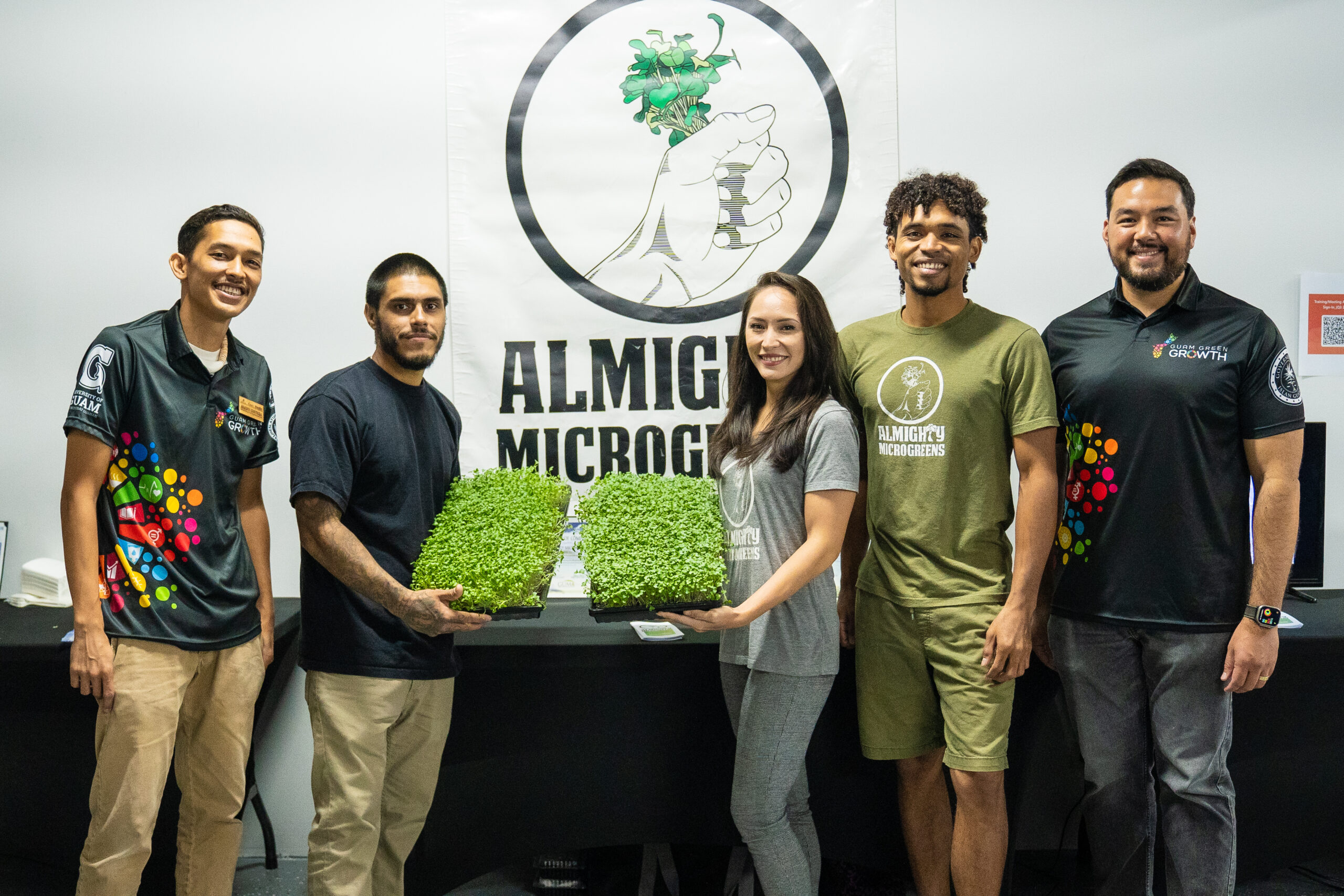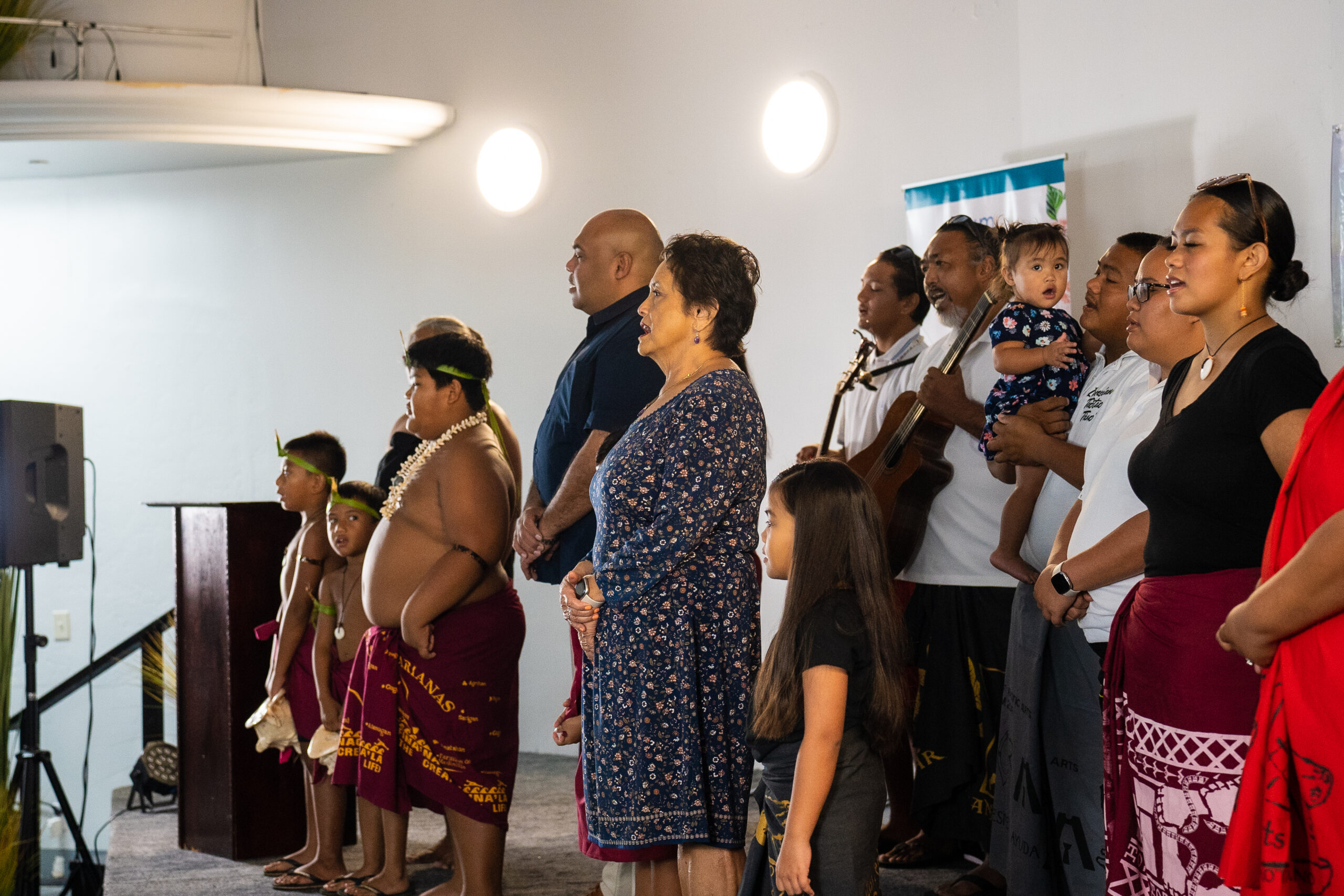





Leading the charge in showcasing the possibilities of 3D printing to the public is the Guam Green Growth (G3) Circular Economy Makerspace & Innovation Hub, located in Chamorro Village in Hagåtña.
3D printing, also known as additive manufacturing, operates similarly to a conventional printer. Instead of using ink on paper, it builds an object by layering filament—material used in 3D printing—to recreate a 3D scanned object.
Filament can range from materials such as plastics, clay, or even concrete, though the scope of substances used in printing will broaden as the industry continues to develop.
Tim Udo, G3 Makerspace coordinator, who helps teach the introductory classes for 3D printing, explains how this new industry can contribute to a circular economy and a cleaner environment in many ways.
Along with the creation of a machine that turns non-recyclable plastics like polyethylene terephthalate (PET) into filament for 3D printers, the machines at G3 Makerspace can also print objects from polyether ether ketone (PEEK), which, after printing and annealing (heat treatment), has the same strength as steel.
Additionally, G3 Makerspace has another 3D printer specifically for using clay as a filament, which Udo says can be used for building structures or tiles that can further regrow coral.
At the G3 Makerspace 3D Printing Basics Workshop, classes are capped at three participants per class, allowing instructors ample one-on-one time with students.
Although classes generally take place on Wednesday nights during the Chamorro Village night market festivities, Udo welcomes anyone wanting to take classes during the day to speak with him at the G3 Makerspace, and he will work with their schedule.
Additionally, participants can look forward to Udo and other instructors teaching students about G-code, which is a widely used Computer Numerical Control (CNC) and 3D printing language used to communicate ideas to the 3D printing software.
At the end of the class, students will get to print their keychains, whistles, or 3D-printed characters as keepsakes to take home.
With the seemingly endless potential of the 3D printing industry, Udo, a mechanical engineer by trade, imparts some advice for any aspiring engineers regarding the limitations of additive manufacturing.
“If you want to do any kind of engineering, carpentry, or any kind of fabricating work, what you need to have is creativity. As long as you have creativity and interest to learn, you can make anything. [The Makerspace] can help you along the way with technical knowledge and the software, but as long as your mind can think of it, you can create it.”
As classes and activities expand at the G3 Makerspace & Innovation Hub, Tim Udo encourages the public to pay a visit to the shop at Chamorro Village.
“I think it is valuable for people to know that we are open to the public. People can get memberships here either on a monthly or yearly basis and then they can come here and utilize all the machinery we have. You can come and take a class for the laser [engraver], learn how it works, and then start cranking out your own products. The same goes for the CNC and the 3D printer. Come here, and we will teach you how to make all of it.”
Classes take place on Wednesdays during the Chamorro Village Night Market festivities. Participants who are 18 years old and older are welcome to sign up either in person or on the G3 Makerspace’s Instagram page.


































